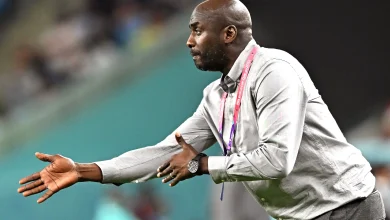
Member of Parliament for Akuapem North, Sammy Awuku, has strongly criticized the revocation of all public sector appointments and recruitments made after December 7, 2024, describing it as a “bad precedent.”
In a Facebook post, Awuku called on President Presiddnt Mahama to reverse the directive from the Chief of Staff, warning that it threatens the future of Ghanaian youth.
He recalled that a similar suggestion was made in 2017 by then-Senior Minister Yaw Osafo-Maafo, who proposed revoking appointments made after the December 2016 elections. However, at the time, the Akufo-Addo government rejected it as unconstitutional and allowed such appointments to stand.
“The NPP respected the fact that President Mahama’s mandate ran until January 6, 2017,” Awuku noted, questioning why the same principle was being abandoned now.
He further pointed out that key public officeholders, including the heads of CHRAJ, the Auditor-General, and the NCCE, were not removed in 2017 because the government respected due process and continuity.
“Ghanaians who received appointments after December 7, 2024, are not second-class citizens. They have a right to work, just like everyone else,” Awuku asserted, adding that these individuals went through rigorous recruitment processes before securing their roles.
He warned that revoking their employment would be a violation of their economic rights under Article 24 of the 1992 Constitution and Sustainable Development Goal (SDG) 8, which promotes decent work and productive employment for all.
According to the Akuapem North MP, public sector recruitment is a process, not an event, and many of these appointments were initiated long before the December 2024 elections. He questioned whether Ghana was now adopting a system where public sector employment was tied to the tenure of the government that hired them.
“If this directive is allowed to stand, it will send a dangerous message to young Ghanaians that their future is tied not to their competence, but to which party was in power at the time they were employed,” he cautioned.
Awuku urged the government to rise above partisanship and focus on creating employment opportunities for all, rather than using political considerations to determine who keeps their job.
“Modern-day governance should not be about punishing perceived political opponents. We must put the country first and not toy with the future of the Ghanaian youth,” he concluded.
The revocation directive, which has sparked heated debate, is expected to face legal and political challenges in the coming days as affected individuals and opposition figures weigh their next steps.



